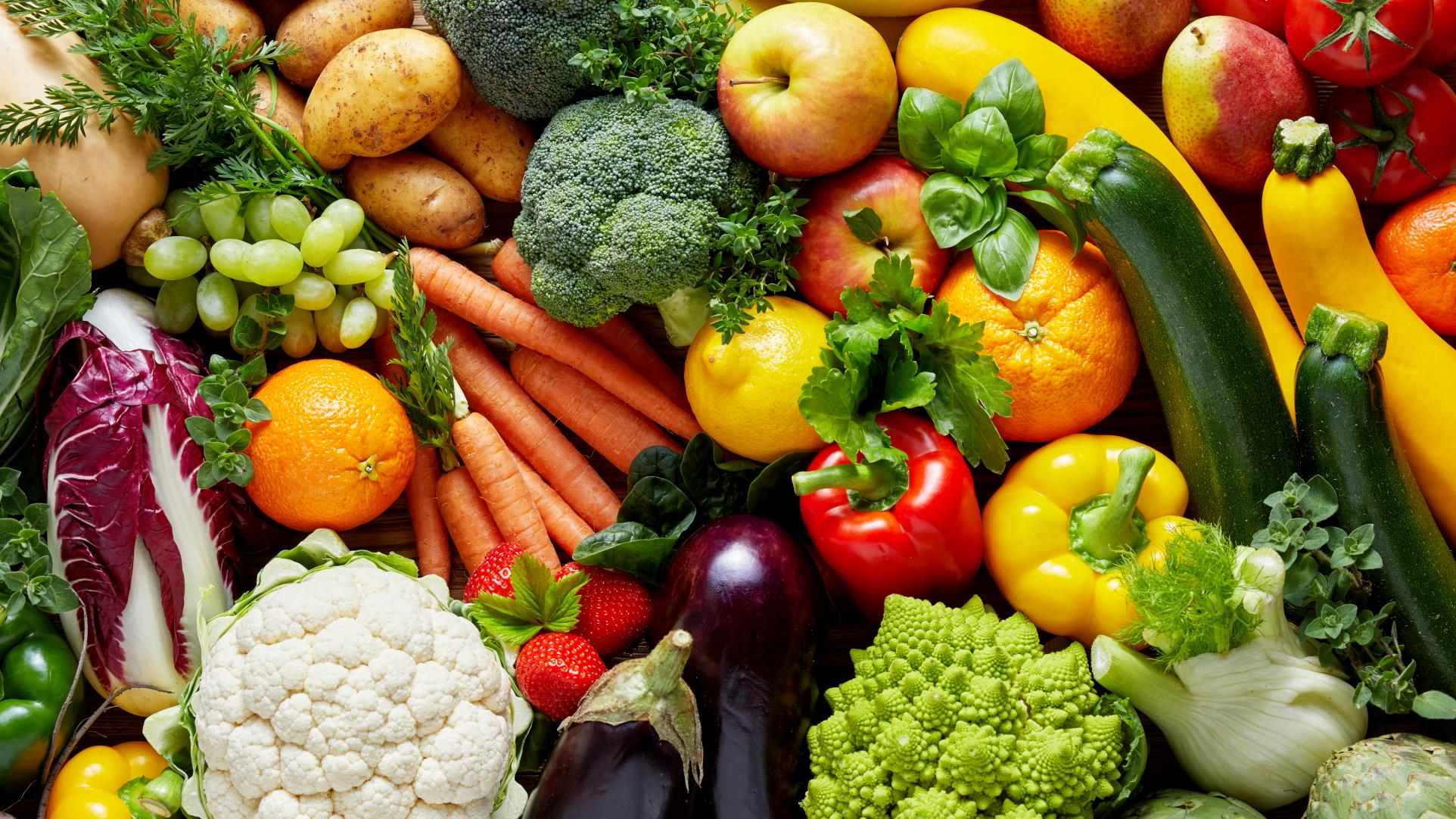Health off Course

Americans are suffering from a great burden of disease that is rooted in lifestyle. Seventy percent of chronic diseases and ailments — including a third of all cancers — are related to diet.¹ There are seven deadly shifts in dietary intake that are major contributors to obesity, heart disease, diabetes, high blood pressure, and cancer. They are:
- increased refined sugars;
- high saturated fat but low omega 3 and monounsaturated fats;
- high total fat and calories;
- increased animal products;
- high sodium and low potassium;
- low vitamins, minerals, and trace minerals; and
- low plant fiber.²
We are way off course in our eating habits — but charting a course toward better health is easier — and tastier — than you may think.
Set Sail for Better Health.

The journey toward improved health, energy, mood, and weight may be as close as your garden — or your local produce department. Major research groups recommend that we get most of our calories from vegetables, fruits, legumes, beans, nuts, and whole grains.³ A plant-based diet has many advantages — it provides color, variety, flavor, and balanced nutrition. It has “fill-up” value because of its high fiber, low-calorie content, so it helps you achieve and maintain a healthy weight. It improves brain health and mood, lowers stress, and helps you live longer and better. It’s pretty on your plate, satisfying to the palate, and good for the planet.
Heart Disease.
“Coloring up” your plate may be the first and best step in preventing or reversing heart disease. Add more fresh fruits and vegetables: they provide powerful antioxidants that reduce inflammation and fight plaque build-up. Lowering saturated fats helps reduce cholesterol. Replace the saturated fats found in meat and high-fat dairy products with plant fats like nuts, olives, avocados, flaxseed meal, and vegetable oils. This can reduce the risk of heart disease and heart attack by up to 50%.⁴ Vegetarians (those who do not eat meat) have less heart disease than meat-eaters.⁵
Diabetes.
The Adventist Health Study found that vegetarians have less incidence of diabetes than non-vegetarians.⁶ Vegetarians are less likely to be overweight — a major contributor to type 2 diabetes. A plant-based diet is high in fiber, which helps control blood sugar — another major factor in preventing diabetes. Many people who have type 2 diabetes are able to manage and even reverse their diabetes through diet, exercise, and weight loss.
High Blood Pressure.
The National Institute of Health created an eating plan to reduce high blood pressure. DASH (Dietary Approaches to Stop Hypertension) is a near-vegetarian diet that is low in animal fat, sodium, and cholesterol. It emphasizes high potassium fruits, vegetables, beans, whole grains, and nuts. DASH studies showed that 77% of those who combined daily exercise with more plant nutrition and less meat reduced high blood pressure to normal levels within 6 months.⁷ The Adventist Health Study has further shown that vegans (those who do not eat animal or dairy products) had the lowest blood pressure of any group.⁸
Cancer.
Plant foods are linked to a lower risk of certain cancers. Beans, lentils, peas, and fruit are protective against prostate cancer. Fruit, soy, lentils, beans, and peas lower pancreatic cancer risk. Dietary fiber and legumes protect against colon cancer, while animal saturated fat increases the risk. Vegetarians have an 85% decreased risk of colon cancer compared to those who eat meat regularly.⁹
Getting Started: Charting Your Course

1. Use the Plan of Addition.
Focus on adding more garden foods or foods from the produce department.
2. Eat plenty of fruits and vegetables.
Aim for at least 5 servings (2-3 cups) of fruit and 5 servings (2-3 cups) of vegetables a day.¹⁰ Enjoy fresh fruit choices at breakfast and as a replacement for rich desserts. Choose vegetable soups, beans, and vegetarian entrees instead of pizza, burgers, and steak.
3. Choose whole grains.
Enjoy brown rice, whole wheat bread, multi-grain pasta, and whole grain cereals such as steel-cut oats. Look for cereals that have at least 3 grams of fiber or more per serving. Make sure at least half of your grain choices are whole grains.
4. Increase beans and legumes.
Beans and legumes are rich in fiber, minerals, antioxidants, and protein. Add garbanzo or other beans to soups, salads, and pasta dishes. Try hummus as a spread instead of butter.
5. Enjoy nuts.
One ounce (about 1/4 cup) of nuts or seeds almost every day can cut your risk of a heart attack significantly. Walnuts are rich in omega 3 fats, which lower inflammation and improve brain health.
6. Try vegetarian entrees.
Grocery stores and restaurants offer many vegetarian entrees such as tofu and soy burgers, garden or black bean burgers, patties, burger crumbles, and sausage. Vegetarian cookbooks provide easy, delicious recipes using grains, tofu, pasta, potatoes, and beans.
7. Eat Smart.
A healthy diet is more than just eliminating meat and dairy or reducing sweets, soda pop, French fries, and processed foods. Get adequate calcium from dark, leafy greens, beans, and/or calcium-fortified soy milk, or calcium supplements. Vitamin B12 is essential to brain and nerve health; get it from fortified cereals and vegetarian foods or a daily supplement.
Call to Action
You are “fearfully and wonderfully made,” a “marvelous” work of God (Psalm 139:14). By following the natural laws that promote health, we can reduce the risk of much sickness and disease and experience longer, happier, and more productive lives.
Your body is made to be a temple or sacred dwelling place for God’s Holy Spirit…"you are God’s workmanship — His building” (1 Corinthians 3:9). With a healthier mind and body, you will be better able to hear God’s voice. You can start today to choose a more abundant life — one bite at a time.
Visit us at LifestyleMatters.com for more resources.
- “Eating to Beat Cancer,” special supplement, Tufts University Health and Nutrition Letter (May 2007).
- Am J Clin Nutr 2005;81(2):341-54.
- www.cnpp.usda.gov/DGAs2010-DGACReport.htm.
- Hall D. The Vegetarian Advantage. Pacific Press, 2010.
- Ref. 3.
- Fraser G. 5th Int. Congress on Vegetarianism; 2008.
- Hall D. The Vegetarian Advantage. Pacific Press, 2010.
- www.nih.gov/news/press/01-12-17.htm.
- Fraser G. Center for Health Research, Loma Linda University.
- DASH Eating Plan at http://www.nhlbi.nih.gov/health/dci/Diseases/dash/dash_follow.html
- 2020 LifestyleMatters® www.lifestylematters.com 1-866-624-5433




